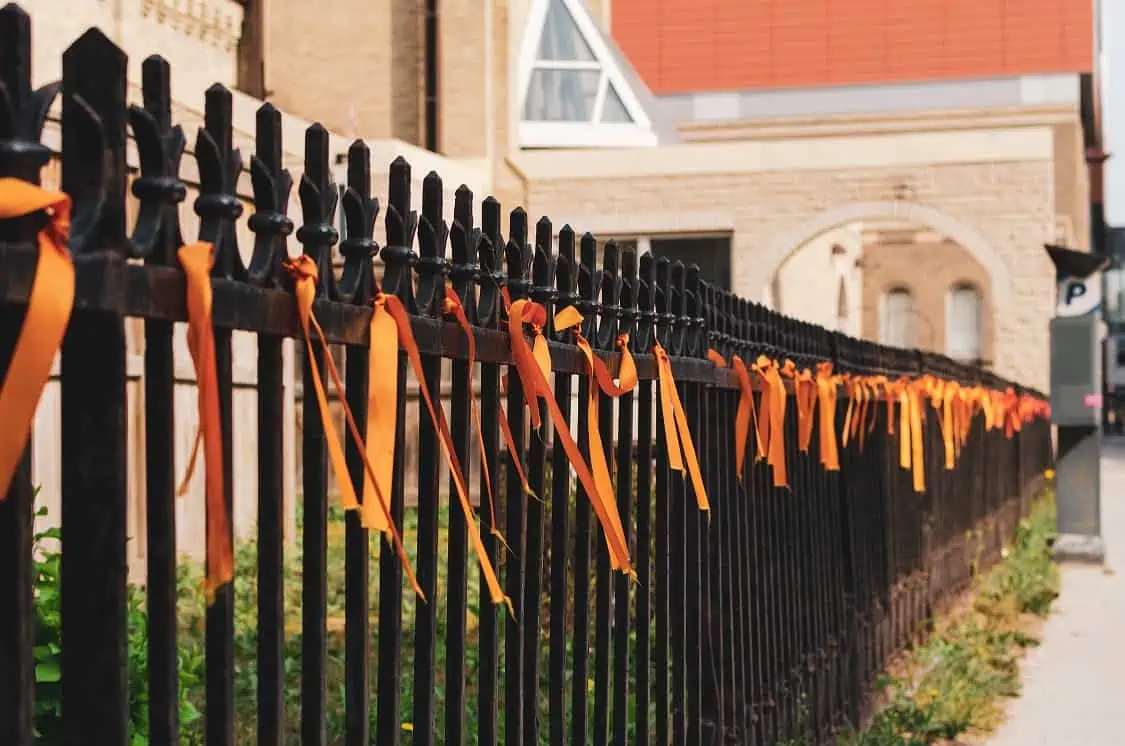‘Painful legacies’ of colonialism remembered on Truth and Reconciliation Day in Oshawa
Published September 27, 2024 at 10:29 am

Truth and reconciliation has always been about more than just honouring the survivors of residential schools. Orange Shirt Day has always been about more than a shirt taken away from a child on her first day at one of those notorious schools.
To Oshawa Mayor Dan Carter, Monday will be a time to remembers both significant events in Canada’s history and move towards reconciliation and a better understanding of the “painful” legacies of colonialism.
“It is important we reflect on our shared history and honour the survivors of residential schools, their families and the many Indigenous children whose lives were tragically taken,” Carter said in a statement. “This day is a solemn reminder of the painful legacy of colonialism and the work that remains to be done in the pursuit of justice, healing and reconciliation.”
Carter believes Oshawa councillors and residents have a “profound responsibility” to confront the impacts of colonialism and to work collaboratively with Indigenous leaders and communities in addressing that history.
“Building meaningful relationships is a foundational step in understanding and acknowledging the truths of the past and creating a more just and equitable future for all. The path toward reconciliation requires us to actively listen, learn, and act in ways that honour Indigenous rights, cultures, and traditions. We must also recognize that reconciliation is not a one-time effort but a continuous commitment to dismantling the colonial structures that still harm Indigenous peoples to this day.”
One step towards reconciliation taken by the city this year was the renaming of Bagot Street – named after Charles Bagot, a pre-confederation Governor-General who published a report in 1844 that laid the groundwork for the residential school system.
The one-block downtown street – which leads directly to City Hall – has been re-named ‘Debwewin Miikan,’ an Anishinaabemowin phrase that means ‘Truth Road.’ The name was recommended by an Indigenous Working Group comprised of representatives of the Williams Treaties First Nations, the Oshawa Durham Métis Council and the urban Indigenous community.
“This was a small step to build a meaningful relationship with Indigenous peoples by opening the opportunity to rename this in a way of their choosing,” Carter noted.

Orange Shirt Day founder Phyillis Webstad
September 30 is also Orange Shirt Day, an Indigenous-led grassroots commemorative day inspired by the story of residential school survivor Phyllis Webstad, whose bright orange short bought for her by her grandmother was taken from her on her first day at Saint Joseph Mission residential school near Williams Lake, B.C. in 1973. She was six years old.
“I encourage all residents to wear orange as a solidarity symbol and to also take time to learn more about Indigenous peoples’ experiences in Canada. Let us commit to making meaningful actions that contribute to dismantling systemic inequalities and creating a community where every person is valued, respected, and heard.”
“Let us stand together as a city that values the contributions and perspectives of Indigenous peoples and works tirelessly towards a future where every generation can thrive, unburdened by the legacy of colonization.”
INdurham's Editorial Standards and Policies




